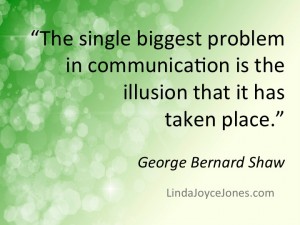Event planning success can only occur when the planning team is working in total harmony. Everyone knows the tasks they are responsible for, and how their efforts fit into the big picture. The event coordinator has to make sure that she is communicating with each team member and they are communicating with each other when needed.
In this section we’ll discuss how to use various communication tools to further your project.
MEETINGS
Meetings can be productive slots of time where goals are identified, project status is reviewed, valuable discussion occurs, and actions steps are established. If poorly run, they can also be a colossal waste of time and energy where no decisions are made and no measurable progress is attained. But for those times when a meeting is necessary, here are a few suggestions to keep your meetings meaningful and focused.
- Any event that will require regular planning meetings should have a set day and time established from the beginning of the project to the actual event (1st and 3rd Thursdays at 7:00 p.m.). Reminder emails should be sent 3 to 7 days prior to each meeting date.
- Always provide a written agenda; it will help to keep the meeting on track and on topic. At a minimum, your agenda should include time for progress reports on any action items from the previous meeting and from key committee chairpersons, introduction of any new topics for discussion, and identification of new action items and assignment of an owner to each new item before you leave.
- I recommend that you designate a facilitator and a note-taker for each meeting. It’s best if these roles are filled with two different people. The facilitator must make sure the conversation doesn’t stray too far from the agenda item being discussed, and must have the ability to take control of the situation if things get off track. If the conversation gets taken over by an unrelated topic or a topic that doesn’t require action by the rest of the attendees present, the facilitator should stop the discussion and suggest a separate meeting to discuss it. The note-taker records any votes or decisions made by the group, records progress on existing action items, and records new action items and owners.
- If key members of your planning group cannot attend your face-to-face meetings, require an email update. This accountability keeps everyone thinking about the tasks they are responsible for. When faced with a deadline, people are more likely to act quickly than when there is an open-ended completion date. Your master plan should include the completion of small goals at frequent intervals.
- A well-run meeting should never go beyond 90 minutes in length. I’ve found that any meeting that goes beyond an hour and a half is non-productive – attendees lose interest and conversations start to stray from the original topic. Let attendees know that the meeting will end after 90 minutes, and then honor that commitment. Your team members will appreciate it!
- Follow up each meeting with meeting minutes that remind everyone of the decisions that were made, and what action items are pending and due before the next meeting. Don’t leave anything to chance – frequent communication minimizes risk and helps maintain momentum.
Next – Effective Communication Pt. 2- Emails
Want to start at page 1 of this book blog? Click here
